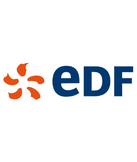Galileo: From Europa EU Int

The Directorate‑General for Energy and Transport is one of 33 policy-specific departments in the European Commission. Find out exactly what it does in the energy sector and how it contributed to the world’s most advanced GPS.
What is the Directorate‑General for Energy and Transport?
The Directorate‑General for Energy and Transport, located in Brussels and Luxembourg, is one of the thirty-three departments in the European Commission created to roll out industry-specific policies. The DG for Energy and Transport is responsible for developing Community transport and energy policies.
Who runs it?
The Directorate-General for Energy and Transport is headed by Matthias Ruete who manages over 1 000 staff members in ten Directorates, all located in Brussels and Luxembourg.
What does it do?
This department in the European Commission is responsible for developing and implementing the EU's energy policy. This includes creating secure and competitive energy for Europe in a sustainable way. It does this by overseeing the demand management of energy sources, including:
- Coal - The DG publishes information on the average quarterly prices of imported coal at Community ports.
- Oil - The weekly Oil Bulletin is a central publication from the DG. The Bulletin describes the price trends of the main petroleum products as well as the evolution of their taxation in the Member States.
- Gas and electricity - The DG ensures that electricity and gas transmission networks and other infrastructure are improved. This extends to transport energy by making supplies as efficiently as possible.
- Nuclear energy - The DG regulates existing nuclear installations to ensure that they continue to be operated safely at the highest level. It also ensures that radioactive waste is managed in a safe and environmentally sound manner.
- New and renewable energy sources - The DG works to make renewable energy sources economically competitive with conventional energy sources in the medium to long term. Renewable energy sources include energy from the sun, wind, water and biomass.
- Energy demand management - Energy efficiency in all end-user sectors under the supervision of the DG. It also works to resolve obstacles related to self-sufficiency and cost. In addition, it initiates promotional measures in order to support market forces and enhance transparency.
Galileo: Satellite navigation
The Directorate‑General for Energy and Transport has played a key role in overseeing the development of Galileo, the world’s leading satellite radio navigation system. This was a worldwide initiative launched by the European Union and the European Space Agency. It was designed to complement the current GPS system.
What is Galileo?
Gallileo is a system of satellites and receivers that indicates the time and positioning of any object on the planet with high precision. It can determine the position or location of any moving or stationary object, be it a car, ship or a herd of sheep. This can all be achieved thanks to a small cheap individual receiver.
How does Galileo work?
Galileo integrates two main components:
- Satellites: A group of satellites are fitted with atomic clocks offering unparalleled accuracy when it comes to timekeeping. They emit personalised signals that indicate the precise time whenever the signal leaves the satellite.
- Ground receivers: A ground receiver, which can be incorporated in any electronic device such as a mobile phone, reads the incoming signal. From this signal, the ground receiver can recognise the particular satellite. Once it receives the signals from at least four satellites simultaneously, it can calculate the exact position by measuring small offsets from the various time stamps.
How can Galileo be used in practice?
This satellite radio navigation system can be used to obtain the positioning of users in several sectors, such as:
- Transport - vehicle location, route searching, speed control, guidance systems.
- Public works - geographical information systems.
- Social services - aid for the disabled or elderly.
- Search and rescue operations - direction-finding at sea or in the mountains.
- The justice system and customs services - location of suspects, border controls.
Who else was involved in Galileo?
Thales Alenia Space, a pioneer in European Space Navigation, played a significant role in developing Galileo. It was responsible for the operational phase which involved the development and deployment of needed infrastructure, as well as maintenance of current functional versions.
In 2018, Thales Alenia Space signed a new tranche of the framework contract on behalf of the European Commission and the GSA, worth about 130 million euros.
The DG was established In 2010 the DG Energy and Transport was split into a DG Energy and a DG Mobility and Transport. You can find out more information from the relevant European Commission site.
